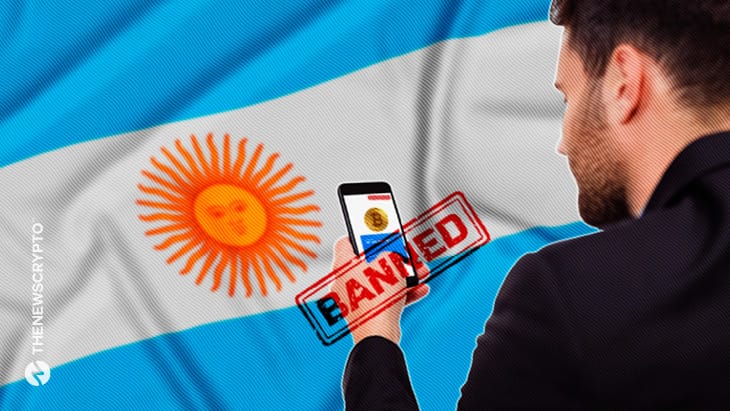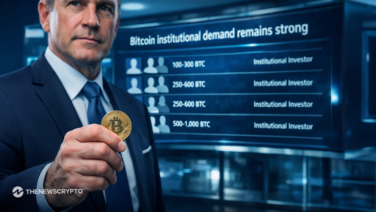- The BCRA, Argentina’s Central Bank, cited the rationale as a desire to “mitigate risks.”
- The bank did not provide a detailed explanation, just saying it was for the clients’ safety.
The Central Bank of Argentina is cracking down on the cryptocurrency sector. The bank issued a statement yesterday saying that payment processors are no longer allowed to provide clients with access to cryptocurrencies like Bitcoin.
The BCRA, Argentina’s Central Bank, cited the rationale as a desire to “mitigate risks.” Several well-known businesses allow their customers to trade cryptocurrencies, such as the finance behemoth Ualá and the online marketplace Mercado Libre.
The Central Bank stated:
“Payment service providers that offer payment accounts may not carry out or facilitate transactions with digital assets, including cryptoassets, that are not regulated by the competent national authority and authorized by the Central Bank of the Argentine Republic (BCRA) to their customers.”
Inflation at Peak
The bank did not provide a detailed explanation, just saying it was for the clients’ safety. As a result, prominent marketplaces such as Mercado Libre, Latin America’s counterpart to Amazon, will be unable to provide Argentinians with Bitcoin purchasing options.
Argentina, the third biggest economy in Latin America, is now experiencing one of the worst inflation rates in the world, with prices having risen by more than 100% for the first time in three decades only last month.
Several local crypto companies, as well as a prominent presidential contender, have advocated for Bitcoin as a means of escape from poverty for average Argentinians who are unable to save money in the wake of the peso’s devaluation.
Cryptocurrencies are gaining popularity in the South American country despite the lack of regulation. Chainalysis, a blockchain analytics company, listed Argentina as the thirteenth most promising country for cryptocurrency adoption in 2022.








